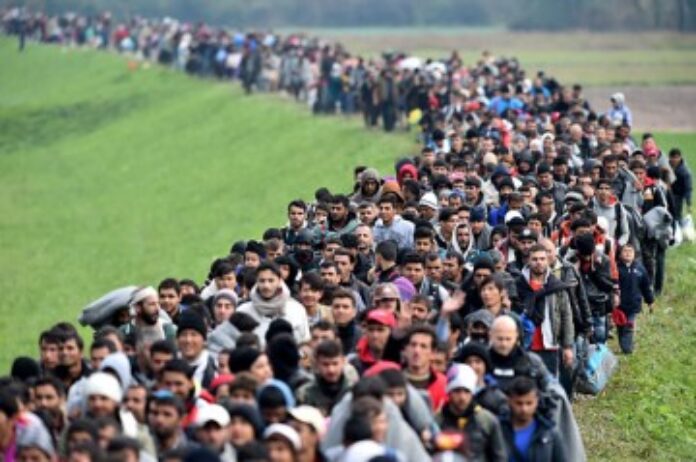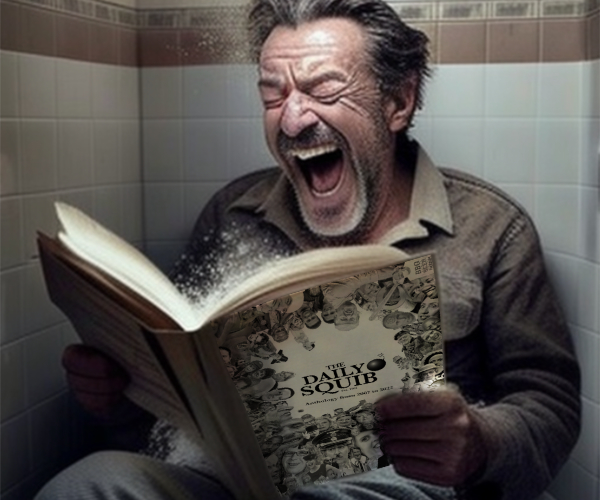Commenting on Alan Johnson’s remarks on immigration on The Today Programme, Tom Watson’s comments to the BBC, and Rachel Reeves’s comments on The Daily Politics, Labour MP John Mann said:
‘David Cameron failed to achieve any reform of the European Union – particularly in the area of border control. He asked them to change their open borders policy, but the resounding answer was no.
‘While some in the In campaign are desperately trying to hang on to the idea that Cameron’s renegotiation could reduce immigration, senior Labour figures are openly admitting defeat on this issue – and calling for a change to the EU’s obsession with freedom of movement.
‘While it is welcome that they are finally admitting that uncontrolled migration is a problem, the truth is that they still have no solutions. If Cameron’s “renegotiation” told us one thing, it is that the EU will not move on this founding principle.
‘The only way to take back control of our borders and introduce an Australian style points based immigration system is to Vote Leave on 23 June.’
- Leading members of the IN campaign are now calling for restrictions on free movement and admitting David Cameron’s deal was a sham.
- Changes to free movement are impossible within the EU. David Cameron didn’t win any concessions despite the threat of leaving the EU.
- IN campaigners have previously accepted restrictions on free movement are impossible within the EU and its ‘single market’.
- Freedom of movement drives down wages.
- The Home Secretary, the House of Lords Economic Affairs Committee and the OECD have said that mass migration has brought no discernible fiscal benefits.
- Leading IN campaigners have previously praised uncontrolled immigration from the EU stating it is the solution to our problems.
- Alan Johnson claimed Turkey could join the EU without free movement. This is false.
- Alan Johnson claimed juxtaposed border controls at Calais would end. The French Interior Minister has said they will continue.
- Alan Johnson wanted the UK to join the single currency. This would have been a disaster.

Leading members of the IN campaign are now calling for restrictions on free movement and admitting David Cameron’s deal was a sham.
Tom Watson has suggested that curbs on free movement may be needed today. BBC Political Editor Laura Kuenssberg has said: ‘Watson-voters been “telling us for a long time” party needs to do more on immigration, suggests any future govt need to curb freedom of movt’.
IN campaigner Rachel Reeves said today: ‘there are huge problems in the European Union at the moment. I am not that saying everything is fine. I think this referendum is a wake up call to the European Union, to the British Government that things have to be done differently on freedom of movement’.
Yesterday, former Secretary of State for Children, Schools and Families, Ed Balls, recognised that free movement was causing problems, stating we need to ‘put new controls on economic migration’.
Leading IN campaigner, Miriam Gonzalez Durantez, whose is married to pro-EU lobbyist Nick Clegg has claimed that the agreement in February was a ‘Mickey Mouse negotiation that the Prime Minister did’.
Alan Johnson has also admitted the renegotiation is a ‘sham’. When asked by Evan Davies whether the renegotiation ‘is a bit of a sham?’, Alan Johnson replied ‘I think so’.
Changes to free movement are impossible within the EU. David Cameron didn’t win any concessions despite the threat of leaving the EU.
EU law provides that: ‘Every citizen of the Union has the right to move and reside freely within the territory of the Member States’.
The European Commission states that: ‘free movement of workers is a fundamental principle of the Treaty’. The Council of Ministers argues that: ‘the free movement of persons is a fundamental pillar of EU policy and that the internal market and its four freedoms are indivisible’.
The Prime Minister promised to change this before his ‘renegotiation’. His final deal contained no changes to free movement.
In his 2014 conference speech, Cameron said: ‘Numbers that have increased faster than we in this country wanted at a level that was too much for our communities, for our labour markets. All of this has to change – and it will be at the very heart of my renegotiation strategy for Europe. Britain, I know you want this sorted so I will go to Brussels, I will not take no for an answer and when it comes to free movement – I will get what Britain needs’.
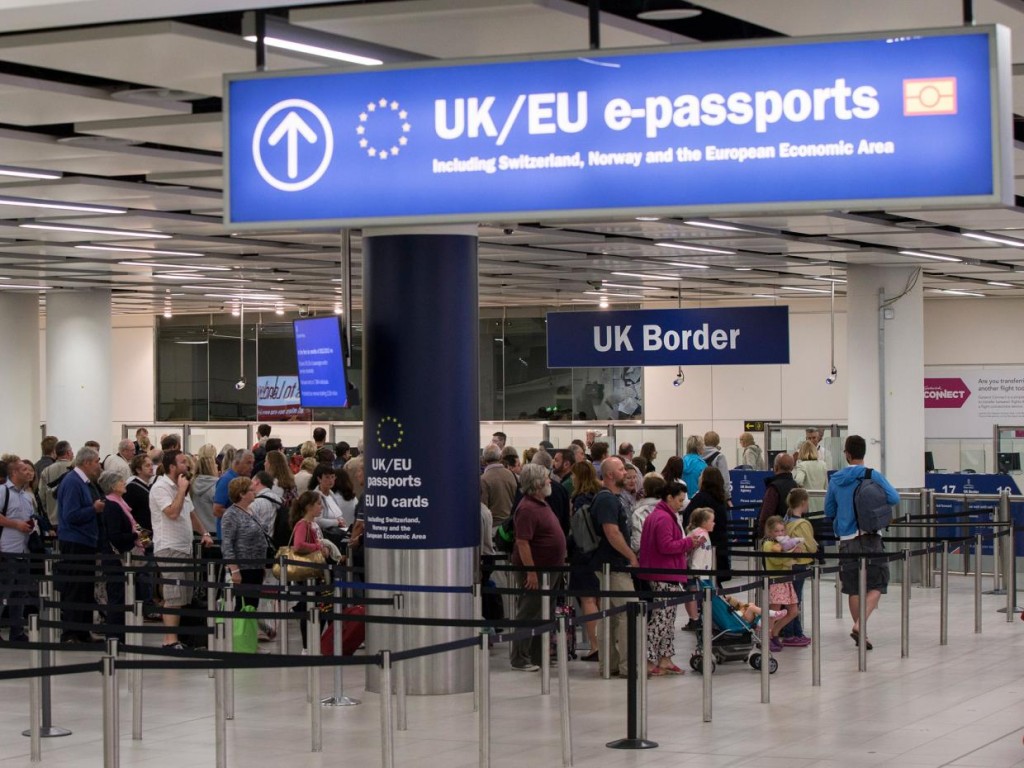
IN campaigners have previously accepted restrictions on free movement are impossible within the EU and the so-called ‘single market’.
The Chancellor of the Exchequer, George Osborne, has said it is impossible to be in the EU or the ‘single market’ ‘without accepting the free movement of people. That is an absolutely clear principle, which has been made very starkly clear to this country by Germany and France, and is internationally accepted’.
Shadow Foreign Secretary, Hilary Benn, has said ‘part of the deal of being part of the European Union is free movement of workers… we have a need for people to come in’.
The Executive Director of the IN campaign, Will Straw, has said: ‘we cannot end free movement, end budget contributions or unilaterally ignore EU regulations’.
Freedom of movement drives down wages.
The Bank of England has found that ‘the immigrant to native ratio has a small negative impact on average British wage’. The study found that ‘immigrants in recent years are most predominant in low-skill occupations’. The study concluded that: ‘the biggest effect is in the semi/unskilled services sector, where a 10 percentage point rise in the proportion of immigrants is associated with a 2 percent reduction in pay’.
The Chairman of the IN campaign, Lord Rose acknowledged this and admitted wages will go up if we Vote Leave, stating: ‘If you are short of labour, the price of labour will go up’.
The Chancellor’s former close adviser, Rupert Harrison, agrees. A BlackRock report in February co-written by Harrison said leaving the EU could mean ‘lower immigration [which] could make labour scarcer in the long run, pushing up wage costs’.
The Home Secretary, the House of Lords Economic Affairs Committee and the OECD have said that mass migration has no discernible fiscal benefits.
In her speech to the 2015 Conservative Party conference in Manchester, the Home Secretary, Theresa May, said: ‘not all of the consequences can be managed, and doing so for many of them comes at a high price… But even if we could manage all the consequences of mass immigration, Britain does not need net migration in the hundreds of thousands every year… The evidence… shows that while there are benefits of selective and controlled immigration, at best the net economic and fiscal effect of high immigration is close to zero. So there is no case, in the national interest, for immigration of the scale we have experienced over the last decade. Neither is it true that, in the modern world, immigration is no longer possible to control… The numbers coming from Europe are unsustainable and the rules have to change’.
The House of Lords Economic Affairs Committee found in 2008 that there is ‘no evidence for the argument, made by the Government, business and many others, that net immigration… generates significant economic benefits for the existing UK population… We also question the Government’s claim that immigration has generated fiscal benefits… The overall fiscal impact of immigration is likely to be small’.
The OECD has found that: ‘Immigrants are thus neither a burden to the public purse nor are they a panacea for addressing fiscal challenges’.
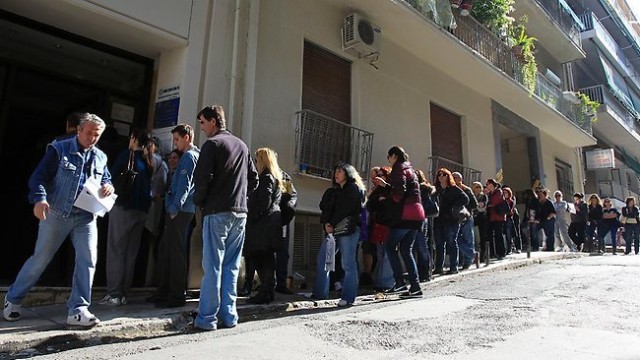
Leading IN campaigners have previously praised uncontrolled immigration from the EU stating it is the solution to our problems.
Last month, Alan Johnson claimed that: ‘If you are thinking about free movement, the people who come over here under free movement… They are helping to solve a very important problem’. He has said that if free movement were ended, ‘you would have a very serious problem for the economy’.
The Executive Director of the IN campaign, Will Straw has said ‘ending free movement’ involves the ‘sacrifice jobs and low prices, which would be the consequence’.
Alan Johnson claimed Turkey could join the EU without free movement. This is false.
On The Today Programme, Alan Johnson claimed Turkey could join the EU without accepting free movement.
Not even the Government believes this to be the case. In April, the Government acknowledged that when Turkey and other accession countries join the EU, their citizens will have the right to come to the UK: ‘once a country becomes a Member State of the EU its citizens have the same rights under EU law as other EU nationals’.
Alan Johnson claimed juxtaposed border controls at Calais would end. The French Interior Minister has said they will continue.
On The Today Programme, Alan Johnson claimed that the UK’s juxtaposed border controls at Calais would end in the event of a leave vote. This is false.
The French Interior Minister, Bernard Cazeneuve, has said: ‘Calling for the border with the English to be opened is not a responsible solution. It would send a signal to people smugglers and would lead migrants to flow to Calais in far greater numbers. A humanitarian disaster would ensue. It is a foolhardy path, and one the government will not pursue’.
Mr Cazeneuve confirmed this remained his view in March and that he was in charge of French immigration policy.
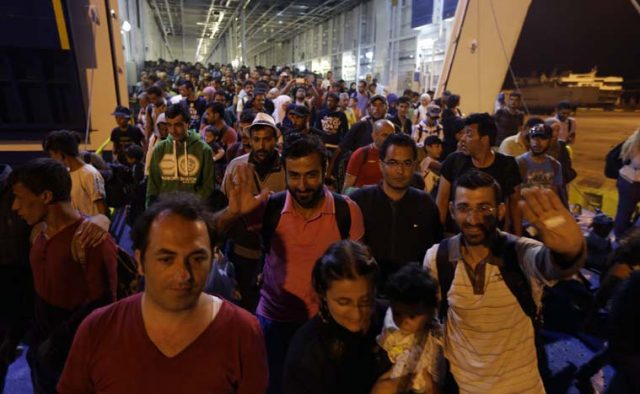
Alan Johnson wanted the UK to join the single currency. This would have been a disaster.
As a minister in the Department for Trade and Industry, Alan Johnson, said companies should be ‘pleased’ at the Labour Government’s ‘strengthened’ support for the single currency. He said companies would be ‘pleased to see we have strengthened our commitment to the principle of joining the euro’.
Alan Johnson also said: ‘we recognise the potential benefits of euro membership for our manufacturing exporters, which is why we support the single currency in principle’.


